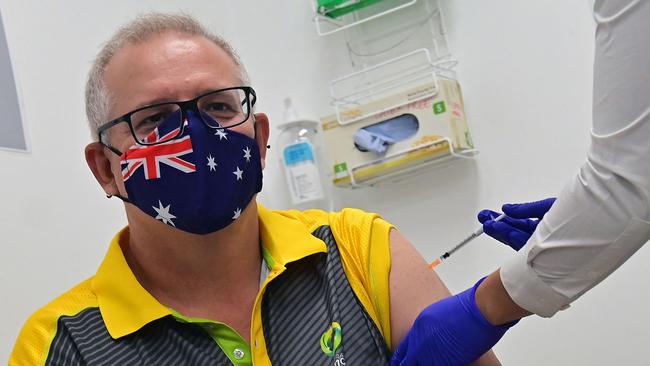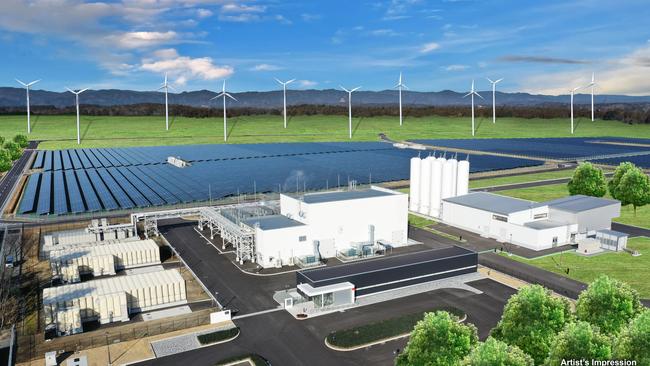Paul Starick: Crucial spring for Covid-19 and state and federal elections
Coming weeks will be critical for tackling Covid-19 and shaping state and federal elections. Politicians need to step up, writes Paul Starick.
Opinion
Don't miss out on the headlines from Opinion. Followed categories will be added to My News.
By New Year’s Day, an overwhelming majority of South Australians is expected to be fully vaccinated against Covid-19.
When the 2022 state and federal election year dawns, chief public health officer Nicola Spurrier says the state should be in a position to avoid “hideous” lockdowns and domestic border closures.
The pandemic’s wild unpredictability, however, means state political leaders are hostage to Professor Spurrier’s advice. National cabinet’s four-stage reopening plan allows for “highly targeted lockdowns only” once the 80 per cent threshold is surpassed. Unfortunately, it’s not hard to imagine a scenario in which Professor Spurrier reaches for the localised lockdown trigger, however hideous, in a bid to squash an outbreak. That’s her job.
The burning question is whether Australians, having become accustomed to eradicating Covid-19 from the community, can learn to live with low case numbers and treat it like the flu, as Prime Minister Scott Morrison hopes.
This will require greater state and federal government leadership on vaccine mandates and passports. A legal and enforcement minefield for employers and businesses has been created by Mr Morrison insisting “the rule of law applies as it normally does” outside mandates for quarantine and aged care workers. How can a cafe owner, for example, be expected to enforce QR code check-ins and deny entry for the non-vaccinated while also trying to make a living?
State and federal leaders have not spelled out a detailed road map for reopening – just the vague four-stage plan. NSW is already proposing to reopen bars, gyms and restaurants to the fully inoculated once vaccination coverage hits 70 per cent. This gets ahead of Premier Steven Marshall’s preference for national cabinet to decide a uniform position on vaccine passports. This must be done soon.

Vaccinated people will demand greater freedoms and a degree of protection from those who refuse the jab, both at work and at leisure. Passes in France and Israel exclude the unvaccinated, without evidence of a negative test, from places including gyms, restaurants, academic institutions and sports events.
In Australia, occupational health and safety requirements have extended to almost every aspect of the workplace. It’s hard to imagine vaccinated people meekly accepting the risk of working next to someone who hasn’t had the jab. The risk of breakthrough infections causing transmission, particularly to children who are not yet eligible for a jab, will remain until all Australians can be offered a vaccine.
Spring will be decisive, both for the vaccination race and the fight to suppress community transmission. The next few weeks will have an inordinate influence on the March 19 state election and a federal poll expected either next March or May.
At a state level, parliament resumes on Tuesday and sits for five of the next ten weeks. After that, there’s only three days in mid-November remaining this year.
Mr Marshall has been buoyed by SA staving off, thus far, a serious outbreak. Covid-19’s continued domination of the news agenda has forced Labor leader Peter Malinauskas to scrap his plans to unveil major policies after the AFL Grand Final.
Instead, the ALP annual state convention, scheduled for October 23, is being positioned as the trigger point to start releasing Labor’s election pitch. Mr Malinauskas rejects criticism he is leaving his run too late, convincingly arguing the next election should be about life after Covid-19 – or what SA will be like in 2026. His policy cupboard is fairly bare, though. The linchpin is a $593m hydrogen-fired power station designed to cut electricity bills and create thousands of jobs. It would be built, owned and operated by a Labor state government.

Mr Malinauskas in June vowed to scrap the Liberal’s signature policy, the $662m Riverbank Arena, and plough the money into health. Labor is targeting the government over health, particularly hospital ramping, in a bid to sheet home the proposition that if hospitals are at breaking point now, they would be overwhelmed by a major outbreak.
Treasurer Rob Lucas has pointed out that Labor would free up only $10m over the next two years by scrapping the arena – construction would not start until 2025.
The state and nation are at a tipping point over Covid-19. NSW Premier Gladys Berejiklian says “we can’t pretend that we will have zero cases around Australia with Delta”, SA authorities expect another outbreak and every day without a lockdown seems like a bonus.
Increased Pfizer vaccine supplies mean everyone aged 16 and over will be eligible for inoculation. But decisions must be made on jabs for younger teenagers and children. State and federal leaders need more detailed plans about life after Covid-19, even if the virus’s unpredictability means some might need to change.




